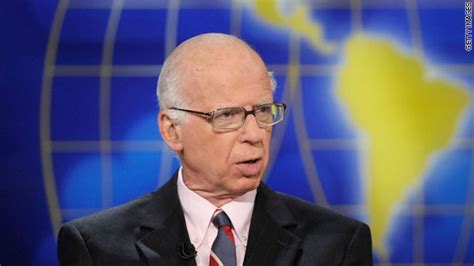A Quote by B. H. Liddell Hart
This high proportion of history's decisive campaigns, the significance of which is enhanced by the comparative rarity of the direct approach, enforces the conclusion that the indirect is by far the most hopeful and economic form of strategy.
Related Quotes
The art of the indirect approach can only be mastered, and its full scope appreciated, by study of and reflection upon the whole history of war. But we can at least crystallize the lessons into two simple maxims- one negative, the other positive. The first is that, in face of the overwhelming evidence of history, no general is justified in launching his troops to a direct attack upon an enemy firmly in position. The second, that instead of seeking to upset the enemy's equilibrium by one's attack, it must be upset before a real attack is, or can be successfully launched
As for slavery, there is no need for me to speak of its bad aspects. The only thing requiring explanation is the good side of slavery. I do not mean indirect slavery, the slavery of proletariat; I mean direct slavery, the slavery of the Blacks in Surinam, in Brazil, in the southern regions of North America. Direct slavery is as much the pivot upon which our present-day industrialism turns as are machinery, credit, etc. … Slavery is therefore an economic category of paramount importance.
Our approach to existential risks cannot be one of trial-and-error. There is no opportunity to learn from errors. The reactive approach - see what happens, limit damages, and learn from experience - is unworkable. Rather, we must take a proactive approach. This requires foresight to anticipate new types of threats and a willingness to take decisive preventive action and to bear the costs (moral and economic) of such actions.
The CIA has acknowledged that it has detained about 100 terrorists since 9/11, and about a third of them have been subjected to what the CIA refers to as 'enhanced interrogation tactics,' and only a small proportion of those have in fact been subjected to the most serious types of enhanced procedures.






































